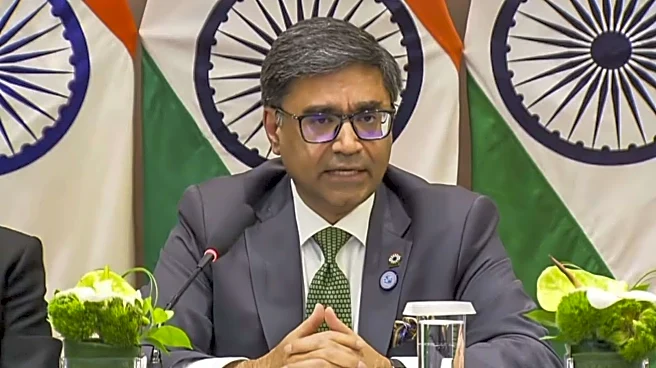The country’s stocks will be included in FTSE Russell’s secondary emerging markets grouping, joining the likes of China, India and Indonesia. The upgrade from frontier status will be effective on Sept. 21, 2026, according to a statement.
“The reclassification of Vietnam reflects the implementation of key market infrastructure enhancements,” David Sol, global head of policy at FTSE Russell, said in a statement.
Vietnam was first added to FTSE Russell’s watchlist for potential reclassification in September 2018, and authorities have undertaken sweeping reforms to align the market with global standards. The country will now be subject to an interim review in March next year. FTSE had predicted an upgrade would add up to $6 billion in redirected foreign inflows to Vietnam.
HSBC Holdings Plc projected last month that an upgrade would lead to inflows of $3.4 billion, adding that about 38% of Asia funds and 30% of global emerging market funds already hold Vietnamese stocks.
“Such a magnitude of capital inflows would be sufficient to reverse the persistent foreign net selling seen in recent years, reaffirming a turning point for the market,” said Tyler Manh Dung Nguyen, chief market strategist at Ho Chi Minh City Securities.
Vietnam’s benchmark VN Index has climbed 33% this year to fresh highs, driven by strong economic growth and hopes for the upgrade. Despite record foreign outflows in August, retail traders powered the market to its best month in more than five years.
The upgrade should bring new capital inflows to the nation, which could boost the Vietnamese dong, said Brendan McKenna, a strategist at Wells Fargo in New York. Sustainability of those flows is key, and it’s “certainly a step in the right direction for the economy and currency,” he added.
Not every factor about an upgrade is positive. As of September, Vietnam held the largest weighting of about 32% in the FTSE Frontier Index, followed by Morocco at nearly 20%. Moving into an emerging market index would mean competing with bigger, more established countries.
“FTSE Russell’s upgrade of Vietnam to emerging-market status marks a watershed moment for Southeast Asia’s fastest-rising economy and equity story. Yet the celebration comes with caution,” said Hebe Chen, an analyst at Vantage Markets in Melbourne, citing a fast-rising dong and high valuations.
The VN Index is trading at 12.2 times forward earnings, compared with its three-year average of 10.1 times, data compiled by Bloomberg shows.
One reform undertaken by Vietnam on its path to an upgrade eliminated the ability of public companies to impose foreign ownership caps below limits allowed by law or international agreements. Another scrapped the requirement for overseas investors to fully pre-fund equity trades, removing a major barrier to participation.
In May, the country launched the long-awaited KRX trading system, a technological upgrade seen as crucial to strengthening transparency and market infrastructure.
Last month, Vietnam’s government laid out a plan to fully meet FTSE Russell’s criteria for upgrading this year and to reach emerging-market status at MSCI Inc. by 2030. The latter is widely seen as a more significant milestone, potentially unlocking even greater foreign inflows.
“There’s been a lot of anticipation on this (upgrade) already,” said Nguyen Thomas, chief global markets officer at SSI Securities Corp. “What’s most critical is for Vietnam to continue its path of development.”
Read More: Nvidia to finance Elon Musk’s xAI chips as part of $20 billion deal
/images/ppid_59c68470-image-175989008692954643.webp)



/images/ppid_a911dc6a-image-177069364492857258.webp)





/images/ppid_59c68470-image-177069274594727234.webp)
/images/ppid_59c68470-image-17706927033367981.webp)
/images/ppid_59c68470-image-17706926096387229.webp)
/images/ppid_59c68470-image-177069252798378934.webp)
/images/ppid_59c68470-image-17706926650825720.webp)
/images/ppid_a911dc6a-image-177069204176387593.webp)